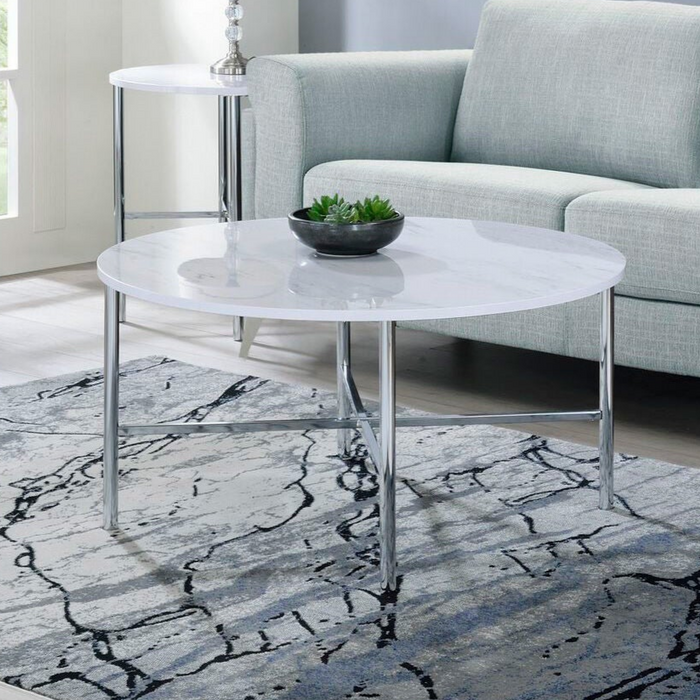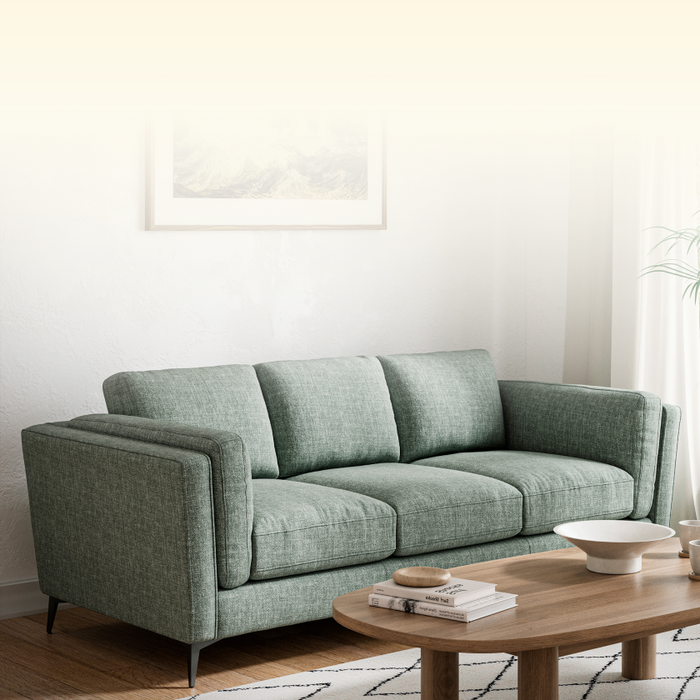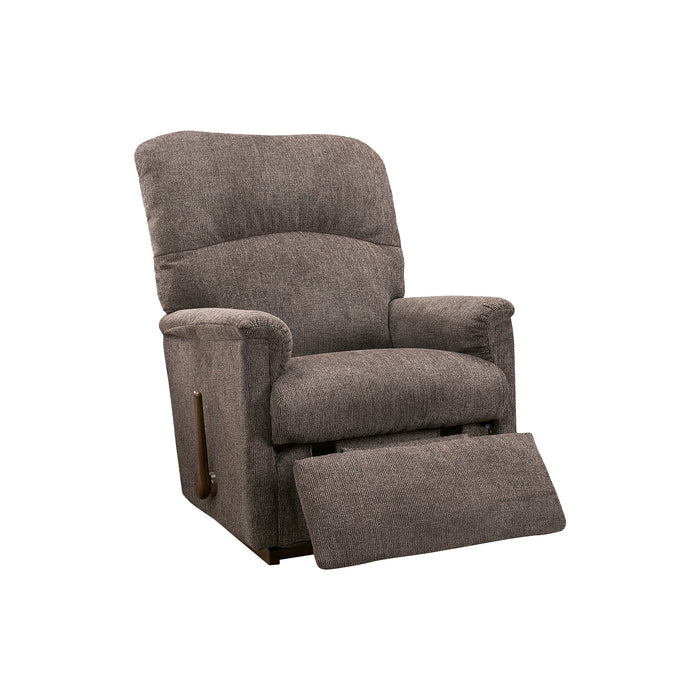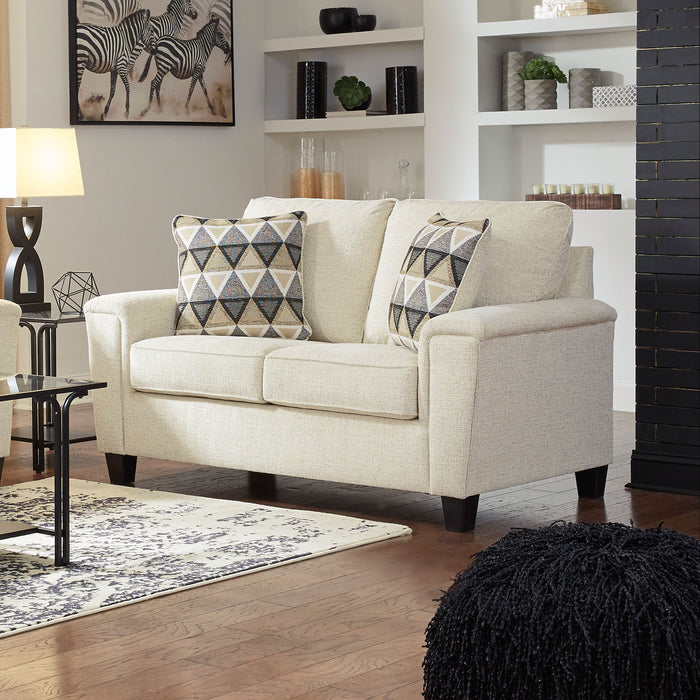
Sometimes what’s stopping you from getting a good night’s sleep is your partner. Maybe your partner tosses and turns. gets up to use the restroom, or has a different sleep schedule.
Whatever the case, the underlying issue is the same: When your partner moves, you can feel it on your side of the bed. This means your mattress is doing a lousy job at what’s called motion isolation.
Motion isolation is the ability of a mattress to reduce the transfer of movement from one side to the other. Imagine placing a glass of water on the mattress. If it remains undisturbed when someone gets in or out of bed, the mattress has excellent motion isolation.
The good news is that there have been advances in mattress technology that directly help mattresses isolate motion. This allows both you and your partner to get better sleep.
This post recommends the best mattresses for customers who want to sleep without their partner waking them up. Plus, we cover the pros and cons of sleeping on other leading types of mattresses with a partner in detail.
Why Should You Care About Motion Isolation?
Motion isolation is crucial if you share your bed with a partner, children, or pets. It ensures their movements won't disturb you, leading to a more restful sleep. Even if you sleep alone, a motion isolation mattress can be more stable and comfortable.Our Choices for the Best Zero Motion Transfer Mattresses
Find our recommendations for the best motion isolation mattresses below. Or, get tailored recommendation for all your sleep needs at one of our stores. Our Slumberland sleep experts are trained to solve a variety of pain points (from sleeping hot to managing lower back pain). Click here to find your nearest Slumberland.
Tempur-Pedic:
Tempur-Pedic mattresses are famous for having good motion isolation. You may remember the commercials where people were jumping on their bed without knocking over a wine glass. (If not, check it out below.)
But what makes Tempur-Pedic so good for motion isolation? It has to do with the technology used in all Tempur-Pedic mattresses – TEMPUR®-material.
TEMPUR®-material was initially developed for NASA to use in the space shuttle. It was designed to absorb extreme amounts of pressure – specifically, the G-forces U.S. astronauts would experience as they shot through the Earth’s atmosphere.
Tempur-Pedic took this advanced material and saw its applicability in mattresses. By using high-density advanced TEMPUR®-material, Tempur-Pedic mattresses absorb movement and pressure.
In our showroom, customers immediately feel the difference of a Tempur-Pedic. Because TEMPUR®-material is a type of memory foam, it begins to conform to your body the moment you come into contact with it. But because TEMPUR®-material also reacts to your natural body heat, it continues to conform to you. It gets softer where you need it and firmer where you want it until it’s perfectly supporting you.
This same advanced technology is what cuts your motion transfer down to practically nothing.
When you buy a Tempur-Pedic mattress from Slumberland, you get a 365-Night Comfort Guarantee. Plus, the Tempur-Pedic mattress is backed by a 10-year warranty. You can learn more about Tempur-Pedic mattresses at Slumberland here.
The Benefits of a Split King Mattress
Tempur-Pedic mattresses are our go-to recommendation for when a customer wants to cut motion transfer. But there’s another way to completely promote motion isolation – sleeping on a split king mattress.
go-to recommendation for when a customer wants to cut motion transfer. But there’s another way to completely promote motion isolation – sleeping on a split king mattress.
A split king mattress consists of two twin extra long (twin XL) mattresses put side-by-side. Couples who want different firmness levels, or feels, will often buy a split king. For example, one person wants a very firm feel and their partner wants a medium-firm feel. They will get two different mattresses and push them next to each other on their mattress foundation.
Split king mattresses are also perfect for light sleepers who need their own sleeping environment. When you sleep on a split king mattress, you’re technically on two different mattresses. The combined dimensions still equal that of a king-size mattress. But, there’s a small gap between the two twin extra-long beds that can be filled with a foam insert. You can further customize your bed by upgrading your foundation to an adjustable bed frame.
Note: Generally, most mattress brands don't offer a split California king mattress. A California king is narrower than a king size. If you were to split that mattress in half, both partners would be sleeping on a very slim, narrow surface.It's also difficult to find a split queen-size mattress though some brands do make a split queen as a custom order.
What to Look for When Shopping for a Zero Motion Transfer Mattress
At our showroom, we carry other leading mattress brands like Sealy Posturepedic, Nectar, and Stearns and Foster. But whether a mattress is good for reducing motion transfer has less to do with its brand name and more to do with its technology.
Below, we cover the four main mattress types on the market. Learn what to look for if you’re considering motion isolation for your next mattress.
To clarify: You can find a quality mattress made out of the materials below. But you can also, unfortunately, spend a lot of money on a bed that will keep you awake as you feel your partner move.We recommend you test out the mattress in-person before deciding.
1. Innerspring (Coil) Mattresses
All other things being equal, innerspring mattresses perform the worst when it comes to motion isolation. If you think about it, this makes sense because coils are bouncy (or what we call highly responsive). And when something is bouncy, it’s not absorbing weight but pushing it back. Think of a cheap hotel bed you’ve laid on in the past. Chances are it squeaked, and chances are it bounced when you sat on it to get ready for bed.
But that doesn’t mean you can’t find a coil mattress that works to reduce motion transfer. But the mattress needs to work against its own technology.
If you want to sleep on an innerspring mattress, look for one that uses individually pocketed coils (also called individually wrapped coils or microcoils).
These coils are part of the same support system while still being separate from one another. This helps cut down on motion transfer. As your body moves, the individual coils respond to you without shifting any neighboring coils.
2. Latex Mattresses
Latex mattresses can be great for eliminating motion transfer, with a few caveats.
When you’re looking at latex mattresses, make sure you’re looking at natural latex. Synthetic latex – while more affordable – doesn’t necessarily have the same benefits as natural latex. The chemical makeup isn’t the same. It’s difficult to capture the unique feel and motion isolation properties of latex.
Generally speaking, when you buy a latex mattress, only 1-4 inches at the top of the mattress are latex. There’s usually polyfoam, coils, or memory foam beneath the latex layers. This means while the latex may be great for motion isolation, your latex layers could be resting on coils that won’t help cut down motion transfer.
Finally, unlike memory foam and hybrid, latex mattresses “bounce back” vs. “slowly conform” to your weight and shape. On a latex mattress, you’re more “on” the mattress instead of “in” the mattress. This doesn’t necessarily impact motion transfer, but it does impact your comfort. If your latex mattress doesn't absorb enough, then you can trigger pressure points in your that lead to tossing and turning.
3. Memory Foam Mattresses
TEMPUR®-material is technically a type of advanced memory foam. But due to its unique properties, Tempur-Pedic foam reacts to your natural body heat, making it unique compared to any other type of foam bed on the market.
Traditional memory foam mattresses can also be a good option for eliminating motion transfer. This is because memory foam still absorbs pressure.
If you’ve ever laid on memory foam, you likely felt the difference from a coil mattress immediately. It’s because there’s very little bounce. Instead, there’s “give” where the foam starts to cradle you. That contouring is great for pressure relief, and it can also be great for isolating motion.
When it comes to gauging whether your memory foam mattress will spread motion from side to side, you want to look at the quality of the foam. Specifically, look at its density.
Higher-density foams tend to cost more money and are rarer, especially with online mattress companies. But the lower the density of the foam, the higher the chance you’ll experience some motion transfer.
A quick note for hot sleepers: Sometimes, high-density all-foam mattresses are associated with sleeping hot. The denser the foam, the less airflow your mattress gets. But that isn't the whole story. Memory foam can be both dense and breathable, depending on the technology used to make it. Click here if you're interested in finding a new mattress that also sleeps cool.
4. Hybrid Mattresses

Some mattress companies define hybrids differently, but generally speaking, a hybrid mattress is a mixture of two technologies. They have a coil support system for the base and comfort layers of foam for the top layers. The foam could be memory foam, poly-foam, or latex.
Hybrid mattresses can be good for promoting zero motion transfer – as long as the foam layers are high-quality, dense, and thick enough. Plus, you also want the coil support system at the bottom of the mattress to be individually pocketed, as we discussed above.
Want to learn more about the different mattress types, and how they compare in terms of temperature regulation, edge support, and more? Check out our comprehensive mattress-buying guide.
Next Steps: Get a Personalized Sleep Solution at Slumberland
If you’re looking for a zero motion transfer mattress, then you already know what issue you’d like to solve – you want to stop waking up when your partner moves throughout the night. Read more about the best mattresses for couples here.
But the right mattress for you can solve so many problems. They can help you sleep cool, reduce pressure points, and give you a deeper and more refreshing sleep.
When you visit a Slumberland store, our staff will ask you the right questions to figure out which sleep solution is right for you and your partner.






